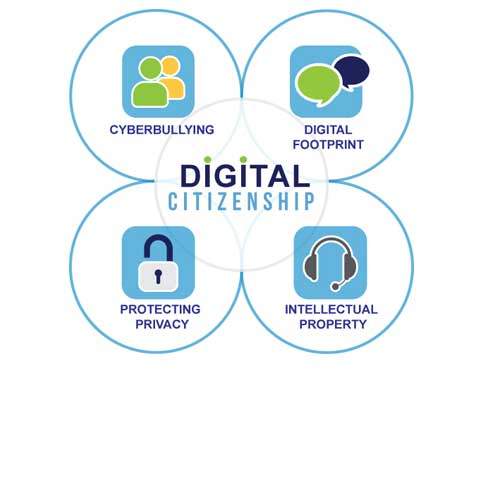By Rabbi Sorin Rosen, Technology Educational Coordinator
As part of Hebrew Academy’s English and Technology curriculum, students in Grades 1 through 6 participate in Digital Citizenship classes throughout the year. The goal of these workshops is to teach students to use the Internet safely and efficiently; to recognizing potential pitfalls and threats; and to become responsible and educated digital citizens. Following is a recap of some of the topics we have covered to date:
Grade 1: Going Places Safely
We explored key terms such as Internet, online and website and compared how staying safe online is similar to staying safe in the “real world”. Among the main rules we discussed were: (1) Always ask a parent/teacher before going online; (2) Only talk to people you know; (3) Stick to places that are safe for you. Parents are encouraged to reinforce these notions/rules whenever their child is using the computer or navigating on the Internet.
Grade 2: Show Respect Online
We learned about the differences between digital communication (especially in writing: email, text) and in-person communication, and how to recognize the importance of tone in all forms of communication. We reviewed some rules for editing emails/texts to make them more clear and respectful: not using all-caps sentences, writing “please” and “thank you”, checking spelling, using proper sentence case, using simple emoticons (e.g. smiling/sad face), and always including a proper signature. To continue the conversation at home, parents are encouraged to utilize the Talking Safely Online tip sheet.
Grades 3-6: Cyberbullying (Materials: here and here)
We discovered the similarities and differences between in-person bullying and cyberbullying and learned to empathize with the targets of such behaviours. We also discussed – based on a fictional scenario – a few of the strategies for preventing and responsibly dealing with cyberbullying incidents. We also explored the idea that anyone can publish content on the Internet, and the fact that not all sites are equally trustworthy. We reviewed criteria to employ when evaluating websites (e.g. general presentation of the website, endorsements from reputable organizations, clarity of information, free of ads or clear distinction between useful content and ads, whether the website present fact or opinion, etc.)
The students were very engaged and motivated, and their comments, interventions and questions in class showed a great deal of awareness on these issues.
Future topics of exploration include efficient searching, strong passwords, copyright, and evaluating search information. For the complete curriculum, please click here.

